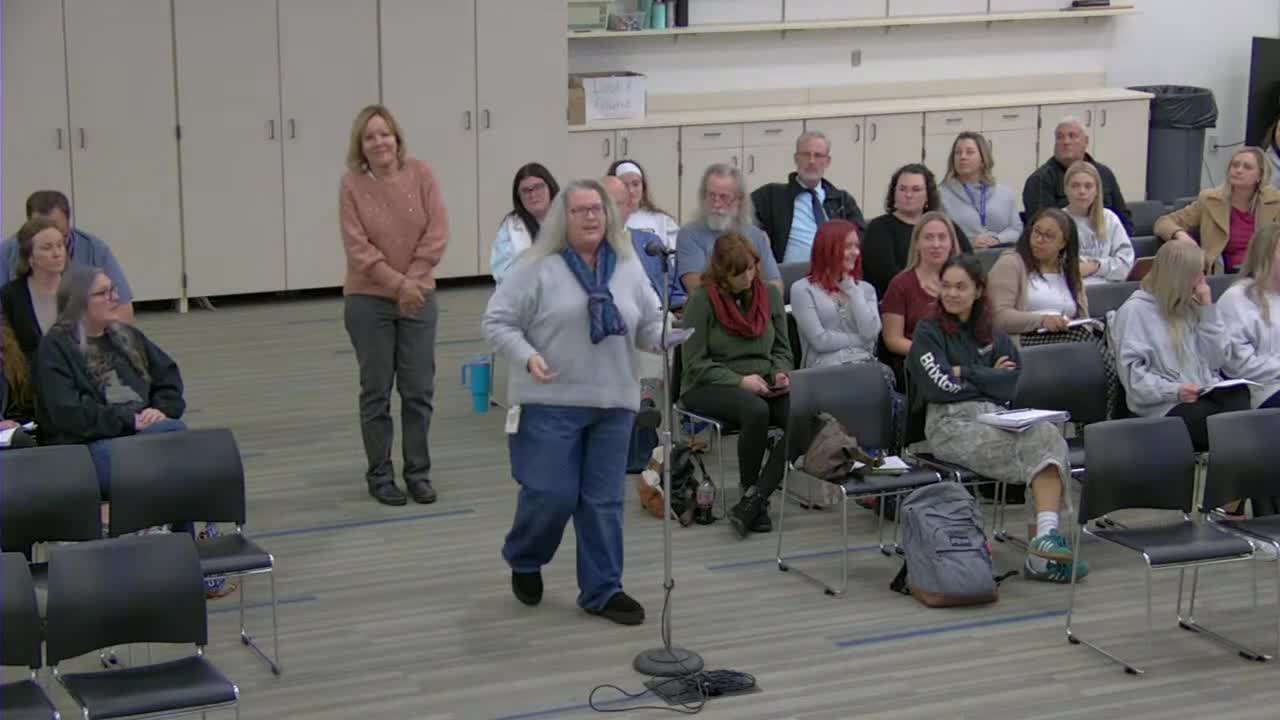Boone County board rejects KSBA-drafted moral-instruction policy after lengthy debate
Get AI-powered insights, summaries, and transcripts
Subscribe
Summary
Following hours of public comment and internal debate about logistics, equity and legal ambiguity, the Boone County Board of Education voted 1–4 against adopting a KSBA sample policy implementing KRS 158.200 that would allow up to one hour per week for off‑campus moral instruction.
The Boone County Board of Education voted 1–4 on Nov. 13 to reject the second reading of board policy O 8.135, a KSBA-drafted framework to implement KRS 158.200, the statute that permits local boards to allow pupils to be excused for up to one hour per week to attend district‑approved moral instruction.
Supporters of the policy said the draft provides a neutral framework for considering written provider applications and managing expectations for transportation, background checks and reporting. The district attorney and superintendent told trustees that the statute requires boards to consider any written provider submission and that the policy would spell out baseline requirements such as insurance, transportation plans and criminal background checks for adults who interact with students.
Opponents — including teachers and parents who spoke during the meeting’s public‑comment period — urged the board to reject the policy, calling it operationally disruptive and legally vague. Teacher Carrie Judd told the board the plan would “be very disruptive to our school day,” highlighting time lost when students leave and re‑enter buildings and asking whether the district would restore the instructional minutes removed. Several parents and staff raised safety and liability questions about transporting students off campus for instruction and warned that late returns could trigger attendance or truancy consequences.
Board member Wolf framed the decision in operational terms, describing the logistics of synchronizing schedules across 27 schools and arguing that the policy would impose an annual administrative burden. “On paper, the policy sounds straightforward,” she said, “but in reality this is a permanent annual labor burden, a logistical treadmill with no finish line.” Trustees pressing the same concerns cited travel times across Boone County, the district’s variation in master schedules, impacts on dual‑credit and CTE courses, and the potential for unintended truancy reports if vendors are late.
Those favoring a policy argued that a neutral, district‑approved framework would help the board deny applications for nondiscriminatory reasons and satisfy the statute’s reporting obligations to the Kentucky Department of Education. The board’s attorney explained that the Attorney General’s office had issued guidance indicating boards must at least consider written provider submissions, but that approval is discretionary so long as denials are not arbitrary or discriminatory.
After extended discussion, the board voted against adopting the policy at second reading. Several members urged advocacy for legislative clarification rather than local adoption. The superintendent and legal counsel said individual provider applications will still come before the board if submitted; rejecting the policy does not prevent the board from approving or denying individual proposals when they appear on future agendas.
What happens next: With the policy rejected, any written provider application that is submitted will be placed on a board agenda for consideration and the district will recommend disposition based on the concerns raised at the Nov. 13 meeting, district counsel said. Board members and community speakers urged lawmakers in Frankfort to clarify KRS 158.200 before districts attempt broad implementation.
